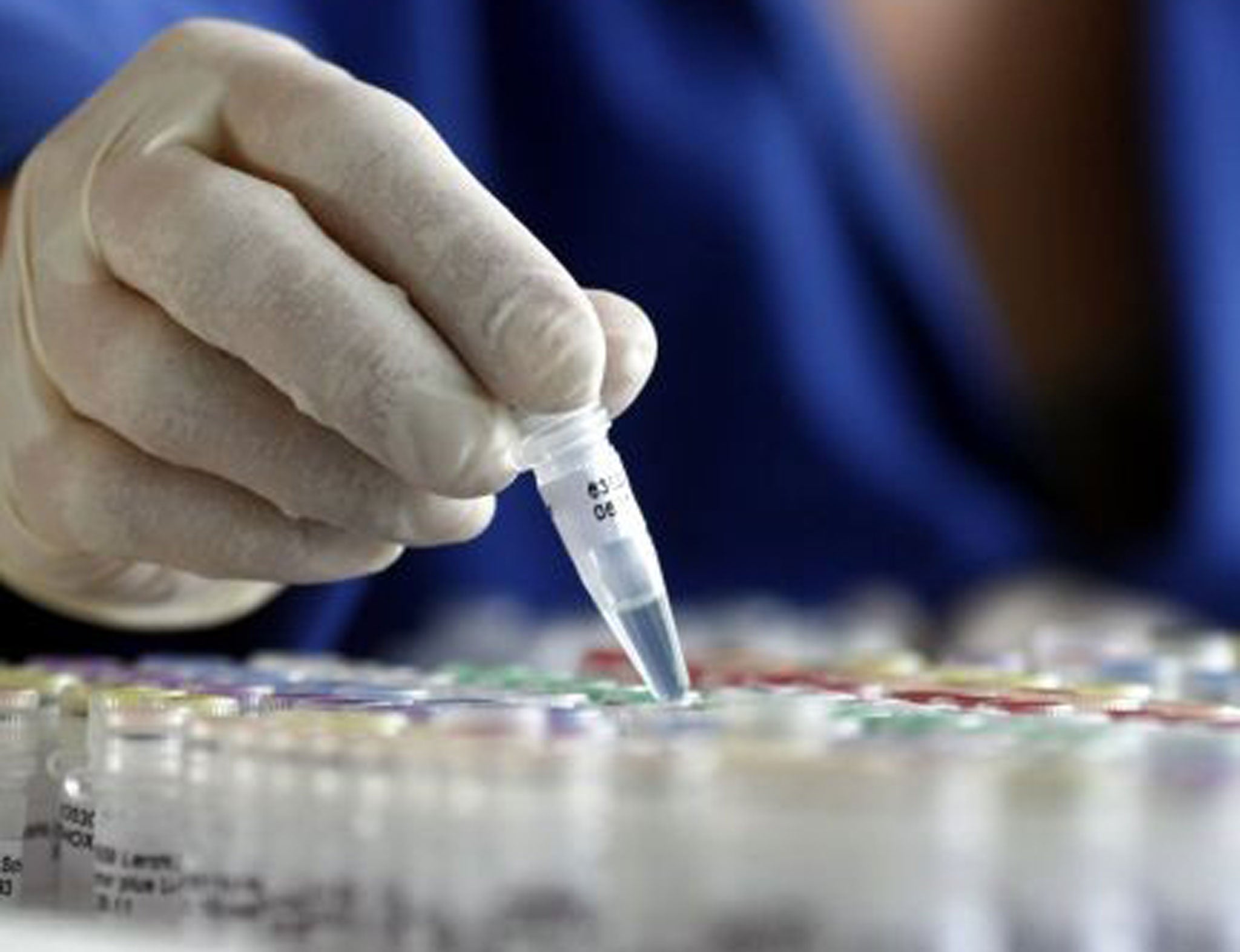Breakthrough? Scientists unveil the 'single biggest leap forward' in tackling prostate cancer
Men could receive routine saliva test within five years, after pan-European research

Men could be routinely screened for prostate cancer by GPs within five years using a simple saliva test to detect the smallest genetic mutations that collectively increase the risk of developing the potentially fatal illness, scientists said today.
Advances in detecting the many dozens of DNA mutations linked with a range of cancers, including ovarian and breast cancers, will lead to a revolution in the early diagnosis and treatment of tumours that would otherwise go undetected, they said.
The latest results of a pan-European study comparing the genomes of 100,000 patients with prostate, ovarian and breast cancers with the DNA of 100,000 healthy individuals has discovered more than 80 additional regions of the human genome linked with these cancers.
Men in particular could be the first to benefit from the findings because of the potential to develop a simple saliva test that could be used to identify the one per cent of the male population who are at nearly five times the risk of developing prostate cancer compared with men at large.
Unlike breast cancer, there is no universal screening for prostate cancer because of the lack of a reliable test. A saliva test to pick up mutations linked to prostate cancer could allow men at greatest risk to be identified and targeted for early diagnosis and treatment, scientists said.
“The idea for all these cancers is that we have a lot more genetic markers so that we can identify the risk factors more precisely and so identify the people at highest risk in order to carry out some kind of early intervention,” said Professor Doug Easton of Cambridge University.
“In practice it would probably be a saliva test done at a local level possibly by a GP – that’s how it’s envisaged. Technically, there’s no particular difficulty with this, and a saliva test would be as good as a blood test,” said Professor Easton, who led one of the studies published in Nature Genetics.
“We’re now on the verge of being able to use our knowledge to develop tests that could complement breast-cancer screening and take us a step closer to having an effective prostate cancer screening programme,” he said.
More than 160 research teams across Europe took part in the Collaborative Oncological Gene-environment Study which involves comparing the DNA sequences of patients and healthy individuals in order to identify the “point mutations” associated with cancer.
In prostate patients, the scientists found an extra 26 mutations – called single nucleotide polymorphisms – where a single letter of the genetic code varies from the norm. This brings the total number of mutations linked with prostate cancer to 78.
Individually, each mutation has a barely perceptible effect on the cancer risk but taken together they increase the risk of prostate disease by between 40 and 50 per cent over the lifetime of a patient. In other words, the 1 per cent of the male population who carry all the mutations are 4.7 times as likely to develop prostate cancer compared with the average.
“These results are the single biggest leap forward in finding the genetic causes of prostate cancer yet made. They allow us, for the first time, to identify men who have a very high risk of developing prostate cancer during their lifetime through inheritance of multiple risk genetic variants,” said Ros Eeles, professor of oncogenetics at the Institute of Cancer Research in London.
“If we can show from further studies that such men benefit from regular screening, we could have a big impact on the number of people dying from the disease, which is still far too high,” Professor Eeles said.
More than 40,000 men in Britain are diagnosed each year with prostate cancer and nearly 11,000 men die annually from the disease. The existing prostate specific antigen (PSA) blood test is not always accurate and does not give a good indication of how aggressive a man’s cancer is likely to become.
The research was funded mainly by the charity Cancer Research UK.
Join our commenting forum
Join thought-provoking conversations, follow other Independent readers and see their replies
Comments
Bookmark popover
Removed from bookmarks